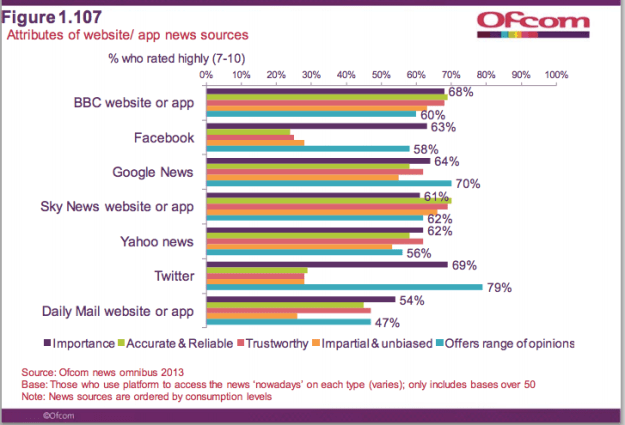Juliet Shaw writes in a guest post on No Sleep ‘Til Brooklands about her experience of fighting The Daily Mail through the courts after they published an apparently fabricated article (her dissection of the article and its fictions is both painstaking and painful).
There is no happy ending, but there are almost 100 comments. And once again you are struck by the power of sources to tell their side of the story. For Juliet Shaw you could just as well read Melanie Schregardus, or the Dunblane Facebook Group.
Among the comments is Mail reader Elaine, who says
“I have always taken their stance and opinions with a large doze of salt. It will be even larger now. Thank goodness for the internet – as a balance to the Mail I can access the Guardian and the Independent to see their take on a particular world/UK event.”
But also in the comments are others who say they have suffered from being the subject of fabricated articles in the Mail – first Catherine Hughes:
“The article was so damaging to my freelance career that editors I was working with now no longer answer my emails. ‘Heartbroken, devastated and gutted’ doesn’t even come close to how I feel. It happened in September and I am still distraught.”
Then Pomona:
“[I have] been a victim of the Daily Fail’s “journalism” on two occasions: once when my first marriage broke up and they printed a lurid and utterly innaccurate story about me (I’m no celeb, just Jo Public), and more recently when one of their journalists lifted and printed a Facebook reply to their request for information (leaving out the bit where I told them I did not permit them to use or reprint any part of my post)”
And Anonymous:
“The Daily Mail said they were looking for a real life example of a similar case of teachers exploiting trust to complement a news story. They promised to protect my anonymity, use only a very small picture and as one of a number of case studies. A week later a double page spread – taken up mostly with a picture of me – bore the headline ‘Dear Sir, I think I Love you’. The quotes bore no resemblance to what I said and made it sound like I liked the teacher?! Instead of what really happened – a drunken shuffle in the back of a car and a feeling of abuse of trust and sadness the next day.”
Jon Morgan:
“When the article was published, my role as welfare officer was never mentioned, the average overdraft had become *my* overdraft, and I was apparently on the verge of jacking in my studies in despair.”
Anonymous:
“I applied as a case study, the photoshoot, the invasive questions. Took months to get my expenses after dozens of ignored emails. Thankfully the article never went to print. At the time I was annoyed but now I am thankful. I also work in PR and would feel extremely uncomfortable offering anyone as a case study for a client. No matter how large the exposure.”
Dirtypj:
“I complained to the editor. He insisted that all journalists identify themselves as such every time. And that his employee had done no wrong. In short, he was calling ME a liar. And as all interviews are recorded he could prove it. I said, Okay, listen to the recording then! He replied, No, I don’t need to. I stand by my writers.”
Other comments mention similar experiences, some with other newspapers. It’s a small point, driven home over and over again: power has shifted.




